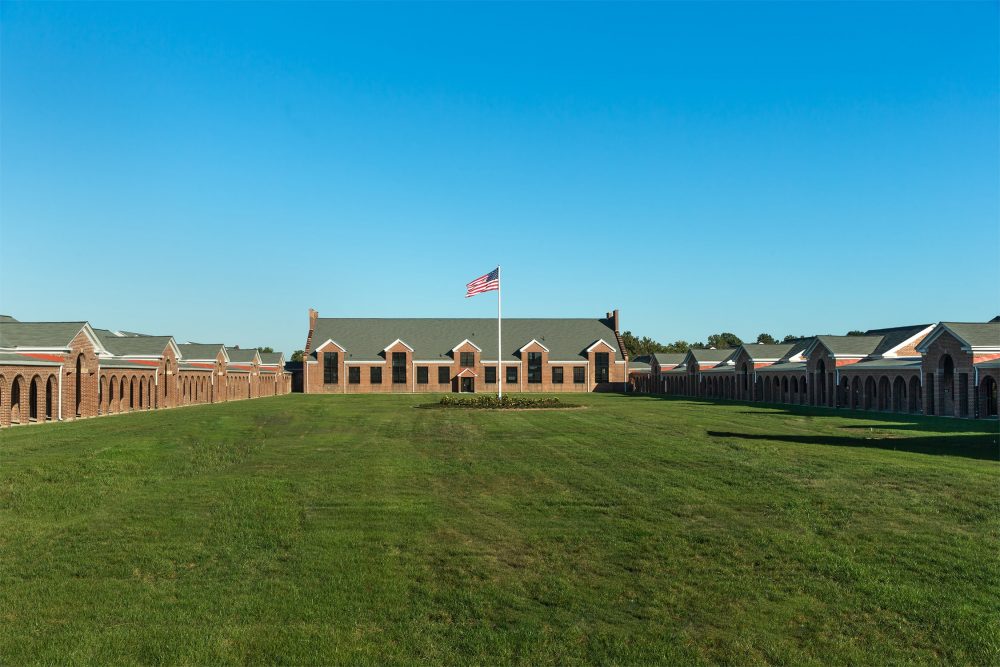“The Alexander Company has helped realize the vision of the Adaptive Reuse Site,” stated Mount Vernon District Supervisor Gerry Hyland. “They have worked collaboratively with Fairfax County and our community groups every step of the way and will deliver an exciting new community that will be a showcase for how to adaptively reuse historic properties the right way.”
The first phase of the development calls for 165 historic apartments, 83 new townhomes, 24 new single-family homes, a clubhouse, a swimming pool, and historic retail and commercial space – the Chapel and Powerhouse. The community layout will accommodate visitors arriving by car and feature a variety of pedestrian and bicycle connections weaving the site into the fabric of the surrounding neighborhoods.
“Lorton Prison is a unique opportunity to re-invent an underutilized, nationally-recognized, historic asset,” said Joe Alexander, president of The Alexander Company. “As a part of our history and culture, places like Lorton Prison must be restored and preserved for future generations. Through the joint efforts of private developers and the public sector, we can save more of these landmarks.”
Sitting along I-95, a main commuting route for the District of Columbia Metro Area, the new community will have all the conveniences of urban living – access to major commuting transportation routes, everyday shopping, urban amenities, etc. – all while retaining a beautifully natural and historic character.
“This is going to be an exciting new community,” Alexander says. “Living in a reinvented historic building is a unique experience, and being surrounded by places to play, work, eat, and learn only heighten that experience.”
Lorton Prison was created as a place where inmates in the District of Columbia could be rehabilitated by acquiring new trade skills – a philosophy considered to be a daring experiment in penology for that era. Roosevelt believed a prisoner’s rehabilitation could be improved if provided with fresh air, natural light, and a place to live and work. With this in mind, the Reformatory was designed as a campus and constructed by the prisoners themselves using bricks manufactured in on-site kilns and lumber cut from trees on the property. The dormitory-style buildings are laid out in a way that provides abundant natural light and open green-space, contrary to traditional cellblocks.
Today the 80-acre planned master-development portion of the property is referred to as Laurel Hill to commemorate the 18th century structure which served as the home of William Lindsay, a Revolutionary War patriot. Having sat a vacant, historic landmark since 2001, Lorton Prison is the final piece of the puzzle that is the Laurel Hill Adaptive Reuse Area. The Alexander Company, in partnership with Elm Street Development and Fairfax County, is breathing new life into Laurel Hill by converting the beautiful colonial revival-style structures into Liberty Crest at Laurel Hill.
Founded in 1981, The Alexander Company specializes in urban infill development, urban revitalization, and historic preservation. Nationwide, The Alexander Company gives new life to historically significant buildings and downtown neighborhoods.

